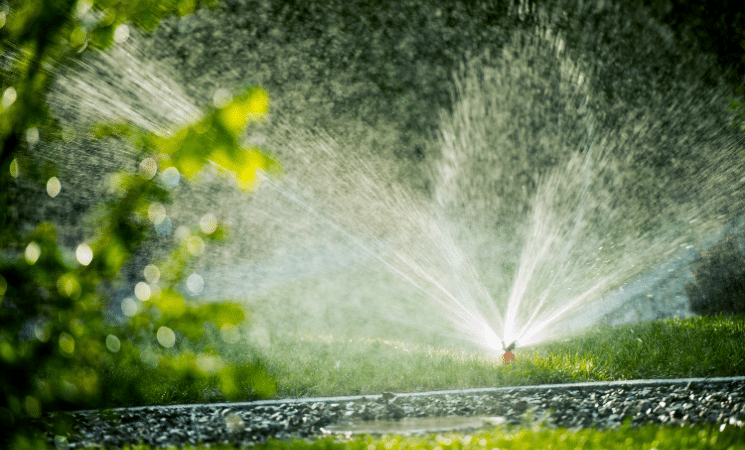
Sustainable Irrigation: Water-Conserving Solutions
Water scarcity is a growing concern, making the adoption of water-conserving irrigation practices crucial for sustainable landscaping. Explore innovative solutions that not only help preserve this precious resource but also contribute to a thriving and eco-friendly outdoor environment.
1. The Importance of Water Conservation in Landscaping
Water conservation in landscaping is vital for preserving the environment and maintaining a sustainable balance. Learn about the impact of water scarcity and why adopting water-conserving irrigation practices is an essential step towards responsible landscaping.
2. Drip Irrigation: Precise and Efficient Watering
Drip irrigation is a water-efficient method that delivers water directly to the base of plants. This precision minimizes water wastage and ensures that each plant receives the necessary moisture. Discover how drip irrigation systems contribute to water conservation while promoting healthier plant growth.
3. Soil Moisture Sensors: Smart Water Management
Soil moisture sensors are revolutionary tools that enable smart water management. These devices measure the moisture content in the soil and provide real-time data, allowing for precise irrigation scheduling. Explore how soil moisture sensors enhance water conservation by preventing overwatering and promoting optimal hydration for plants.
4. Rainwater Harvesting: Utilizing Nature’s Bounty
Rainwater harvesting is an eco-friendly approach to irrigation. By collecting and storing rainwater, homeowners can utilize nature’s bounty to water their landscapes. Learn about the benefits of rainwater harvesting, including reduced reliance on traditional water sources and minimized environmental impact.
5. Xeriscaping: Landscaping with Water Efficiency in Mind
Xeriscaping is a water-conscious landscaping approach that focuses on using low-water or drought-tolerant plants. This design strategy not only conserves water but also creates beautiful and sustainable landscapes. Explore the principles of xeriscaping and how it promotes water efficiency.
6. Native Plants: Adapted to Local Conditions
Choosing native plants for your landscape contributes to water conservation. Native plants are adapted to local climate conditions, requiring less water than non-native species. Discover the beauty of incorporating native plants into your garden while contributing to the preservation of water resources.
7. Mulching: Water Retention and Weed Control
Mulching serves as a dual-purpose technique for water conservation. It helps retain soil moisture by reducing evaporation and suppresses weed growth, minimizing competition for water. Learn about the different types of mulch and how this simple practice contributes to efficient water use in landscaping.
8. Efficient Irrigation System Design
Designing an efficient irrigation system is key to water conservation. Consider factors such as soil type, plant water needs, and local climate when planning your system. Explore irrigation design principles that maximize water efficiency and minimize waste for a sustainable landscape.
9. Smart Irrigation Controllers: Automated Efficiency
Smart irrigation controllers use weather data and real-time information to adjust watering schedules automatically. This technology optimizes irrigation efficiency by adapting to changing weather conditions. Delve into the features and benefits of smart irrigation controllers for water-conserving landscapes.
10. Education and Outreach: Fostering Water-Wise Practices
Promoting water-wise practices in your community is essential for creating a collective impact. Engage in education and outreach efforts to raise awareness about the importance of water conservation in landscaping. Encourage your neighbors to adopt water-efficient irrigation practices for a more sustainable and resilient environment.
Implementing Water-Conserving Irrigation Practices
For a comprehensive guide to implementing water-conserving irrigation practices and additional tips on sustainable landscaping, visit Water-Conserving Irrigation. This resource provides valuable insights, practical advice, and inspiration for creating a lush and eco-friendly outdoor space while prioritizing water conservation.
Conclusion: Nurturing Landscapes and Preserving Water
In conclusion, sustainable irrigation practices play a crucial role in nurturing landscapes while preserving water resources. From drip irrigation to rainwater harvesting, adopting water-conserving techniques contributes to a greener and more eco-friendly outdoor environment. Embrace these solutions, and take steps towards responsible landscaping that not only enhances the beauty of your surroundings but also ensures a sustainable future.






![Everything You Need to Know Hermes’ [Bag Name] Everything You Need to Know Hermes’ [Bag Name]](https://images.unsplash.com/photo-1507666664345-c49223375e33?fm=jpg&q=60&w=3000&ixlib=rb-4.0.3&ixid=M3wxMjA3fDB8MHxzZWFyY2h8MTN8fGhlcm1lcyUyMHBhcmlzJTIwYmFnfGVufDB8MHwwfHx8Mg%3D%3D)

